KYC Form: What, Why and How?
KYC Form: What, Why and How?
KYC Form: What, Why and How?
KYC is an important step in the finance domain. But what does it mean to know your customer, and what are KYC requirements? Let’s find out.
KYC is an important step in the finance domain. But what does it mean to know your customer, and what are KYC requirements? Let’s find out.
KYC is an important step in the finance domain. But what does it mean to know your customer, and what are KYC requirements? Let’s find out.
Trust in finance is a must. It begins with Knowing Your Customer (KYC), and ensuring trust in the long run requires the “KYC form.” But what exactly is it, and how do you make one?
What is a KYC Form?
KYC stands for "Know Your Customer," and the KYC form acts as an identity verification tool. It collects essential information about the customer. This, in turn, allows a financial institution to confirm the customer’s identity and source of wealth and address, mitigate potential risks, and ensure compliance with regulations.
Why Do We Need a KYC Form?
A KYC form is necessary unless you want to hand over loans to people without documentation and go bankrupt. You can only prevent fraud, money laundering, and shady financing when you know your customer.
Overall, it is a step toward creating a transparent financial ecosystem. A KYC form is essentially a gatekeeper to protect your institution and the other customers who come via your reputation.
Where Is a KYC Form Needed?
Speaking of finance, the KYC form is needed for the following actions:
Open a bank account: The goal is to get to know the customer before they can deposit money and sign up for various financial services.
Invest in stocks: Whether you're a seasoned trader or a full-fledged firm, the KYC form helps you distinguish between novice enthusiasts and those who really want to invest.
Taking a loan: It could be a small personal loan or a mortgage for a house; the KYC form is the verification process to ensure that the money being lent will be repaid.
Use payment services: Some online payment platforms and cryptocurrency exchanges require KYC compliance to identify who the user is and which bank account(s) they have.
Who Conducts KYC and How?
The financial institution with whom the customer engages puts up a KYC form. These could be banks, investment firms, insurance companies, and other regulated entities obligated to verify customers. They usually pick a typical KYC application form and embed it on their website or app or ask a user to fill it out as a document and upload it.
What All Comes in KYC Requirements?
The specific KYC requirements depend on the institution and the level of risk associated with the financial services. The main KYC requirements are listed below, along with the relevant KYC document:
Personal information like name, date of birth, address, nationality, and contact details.
Government-issued identification can be verified via a passport, driver's license, social security number, or national ID card.

Proof of address can be ascertained via utility bills, bank statements, and property tax documents.
Source of income through employment documents, tax returns, and business registration documents.
Summary: Make Your KYC Form Today
Filling out a KYC form is not an obstacle but a step closer to filtering out unqualified customers who could pose a threat in the future. Hence, having a KYC form is essential for a financial services provider's well-being. To make a KYC form that can capture information quickly and process documents of different kinds, check out the form builder by WorkHack.
FAQs
What is a KYC form?
A KYC form verifies a customer’s identity and financial details before they can access a company's financial services.
Can I submit a KYC form online?
Many companies and service providers offer online KYC forms where customers can upload scanned copies, images, and documents to meet the KYC requirements.
What is KYC verification?
KYC verification is done after filling out the KYC form. It is the process of comparing KYC information with the official records of the customer to check for accuracy.
When should KYC be performed?
KYC is typically performed when onboarding a new customer or when an existing customer wants to upgrade to high-risk financial services.
What is eKYC?
An electronic KYC or eKYC is where digital identity verification methods are used for quicker and more convenient authentication. This includes sharing a QR code on an official document, switching on a smartphone's location, and clicking a selfie for facial recognition.
Trust in finance is a must. It begins with Knowing Your Customer (KYC), and ensuring trust in the long run requires the “KYC form.” But what exactly is it, and how do you make one?
What is a KYC Form?
KYC stands for "Know Your Customer," and the KYC form acts as an identity verification tool. It collects essential information about the customer. This, in turn, allows a financial institution to confirm the customer’s identity and source of wealth and address, mitigate potential risks, and ensure compliance with regulations.
Why Do We Need a KYC Form?
A KYC form is necessary unless you want to hand over loans to people without documentation and go bankrupt. You can only prevent fraud, money laundering, and shady financing when you know your customer.
Overall, it is a step toward creating a transparent financial ecosystem. A KYC form is essentially a gatekeeper to protect your institution and the other customers who come via your reputation.
Where Is a KYC Form Needed?
Speaking of finance, the KYC form is needed for the following actions:
Open a bank account: The goal is to get to know the customer before they can deposit money and sign up for various financial services.
Invest in stocks: Whether you're a seasoned trader or a full-fledged firm, the KYC form helps you distinguish between novice enthusiasts and those who really want to invest.
Taking a loan: It could be a small personal loan or a mortgage for a house; the KYC form is the verification process to ensure that the money being lent will be repaid.
Use payment services: Some online payment platforms and cryptocurrency exchanges require KYC compliance to identify who the user is and which bank account(s) they have.
Who Conducts KYC and How?
The financial institution with whom the customer engages puts up a KYC form. These could be banks, investment firms, insurance companies, and other regulated entities obligated to verify customers. They usually pick a typical KYC application form and embed it on their website or app or ask a user to fill it out as a document and upload it.
What All Comes in KYC Requirements?
The specific KYC requirements depend on the institution and the level of risk associated with the financial services. The main KYC requirements are listed below, along with the relevant KYC document:
Personal information like name, date of birth, address, nationality, and contact details.
Government-issued identification can be verified via a passport, driver's license, social security number, or national ID card.

Proof of address can be ascertained via utility bills, bank statements, and property tax documents.
Source of income through employment documents, tax returns, and business registration documents.
Summary: Make Your KYC Form Today
Filling out a KYC form is not an obstacle but a step closer to filtering out unqualified customers who could pose a threat in the future. Hence, having a KYC form is essential for a financial services provider's well-being. To make a KYC form that can capture information quickly and process documents of different kinds, check out the form builder by WorkHack.
FAQs
What is a KYC form?
A KYC form verifies a customer’s identity and financial details before they can access a company's financial services.
Can I submit a KYC form online?
Many companies and service providers offer online KYC forms where customers can upload scanned copies, images, and documents to meet the KYC requirements.
What is KYC verification?
KYC verification is done after filling out the KYC form. It is the process of comparing KYC information with the official records of the customer to check for accuracy.
When should KYC be performed?
KYC is typically performed when onboarding a new customer or when an existing customer wants to upgrade to high-risk financial services.
What is eKYC?
An electronic KYC or eKYC is where digital identity verification methods are used for quicker and more convenient authentication. This includes sharing a QR code on an official document, switching on a smartphone's location, and clicking a selfie for facial recognition.
Trust in finance is a must. It begins with Knowing Your Customer (KYC), and ensuring trust in the long run requires the “KYC form.” But what exactly is it, and how do you make one?
What is a KYC Form?
KYC stands for "Know Your Customer," and the KYC form acts as an identity verification tool. It collects essential information about the customer. This, in turn, allows a financial institution to confirm the customer’s identity and source of wealth and address, mitigate potential risks, and ensure compliance with regulations.
Why Do We Need a KYC Form?
A KYC form is necessary unless you want to hand over loans to people without documentation and go bankrupt. You can only prevent fraud, money laundering, and shady financing when you know your customer.
Overall, it is a step toward creating a transparent financial ecosystem. A KYC form is essentially a gatekeeper to protect your institution and the other customers who come via your reputation.
Where Is a KYC Form Needed?
Speaking of finance, the KYC form is needed for the following actions:
Open a bank account: The goal is to get to know the customer before they can deposit money and sign up for various financial services.
Invest in stocks: Whether you're a seasoned trader or a full-fledged firm, the KYC form helps you distinguish between novice enthusiasts and those who really want to invest.
Taking a loan: It could be a small personal loan or a mortgage for a house; the KYC form is the verification process to ensure that the money being lent will be repaid.
Use payment services: Some online payment platforms and cryptocurrency exchanges require KYC compliance to identify who the user is and which bank account(s) they have.
Who Conducts KYC and How?
The financial institution with whom the customer engages puts up a KYC form. These could be banks, investment firms, insurance companies, and other regulated entities obligated to verify customers. They usually pick a typical KYC application form and embed it on their website or app or ask a user to fill it out as a document and upload it.
What All Comes in KYC Requirements?
The specific KYC requirements depend on the institution and the level of risk associated with the financial services. The main KYC requirements are listed below, along with the relevant KYC document:
Personal information like name, date of birth, address, nationality, and contact details.
Government-issued identification can be verified via a passport, driver's license, social security number, or national ID card.

Proof of address can be ascertained via utility bills, bank statements, and property tax documents.
Source of income through employment documents, tax returns, and business registration documents.
Summary: Make Your KYC Form Today
Filling out a KYC form is not an obstacle but a step closer to filtering out unqualified customers who could pose a threat in the future. Hence, having a KYC form is essential for a financial services provider's well-being. To make a KYC form that can capture information quickly and process documents of different kinds, check out the form builder by WorkHack.
FAQs
What is a KYC form?
A KYC form verifies a customer’s identity and financial details before they can access a company's financial services.
Can I submit a KYC form online?
Many companies and service providers offer online KYC forms where customers can upload scanned copies, images, and documents to meet the KYC requirements.
What is KYC verification?
KYC verification is done after filling out the KYC form. It is the process of comparing KYC information with the official records of the customer to check for accuracy.
When should KYC be performed?
KYC is typically performed when onboarding a new customer or when an existing customer wants to upgrade to high-risk financial services.
What is eKYC?
An electronic KYC or eKYC is where digital identity verification methods are used for quicker and more convenient authentication. This includes sharing a QR code on an official document, switching on a smartphone's location, and clicking a selfie for facial recognition.
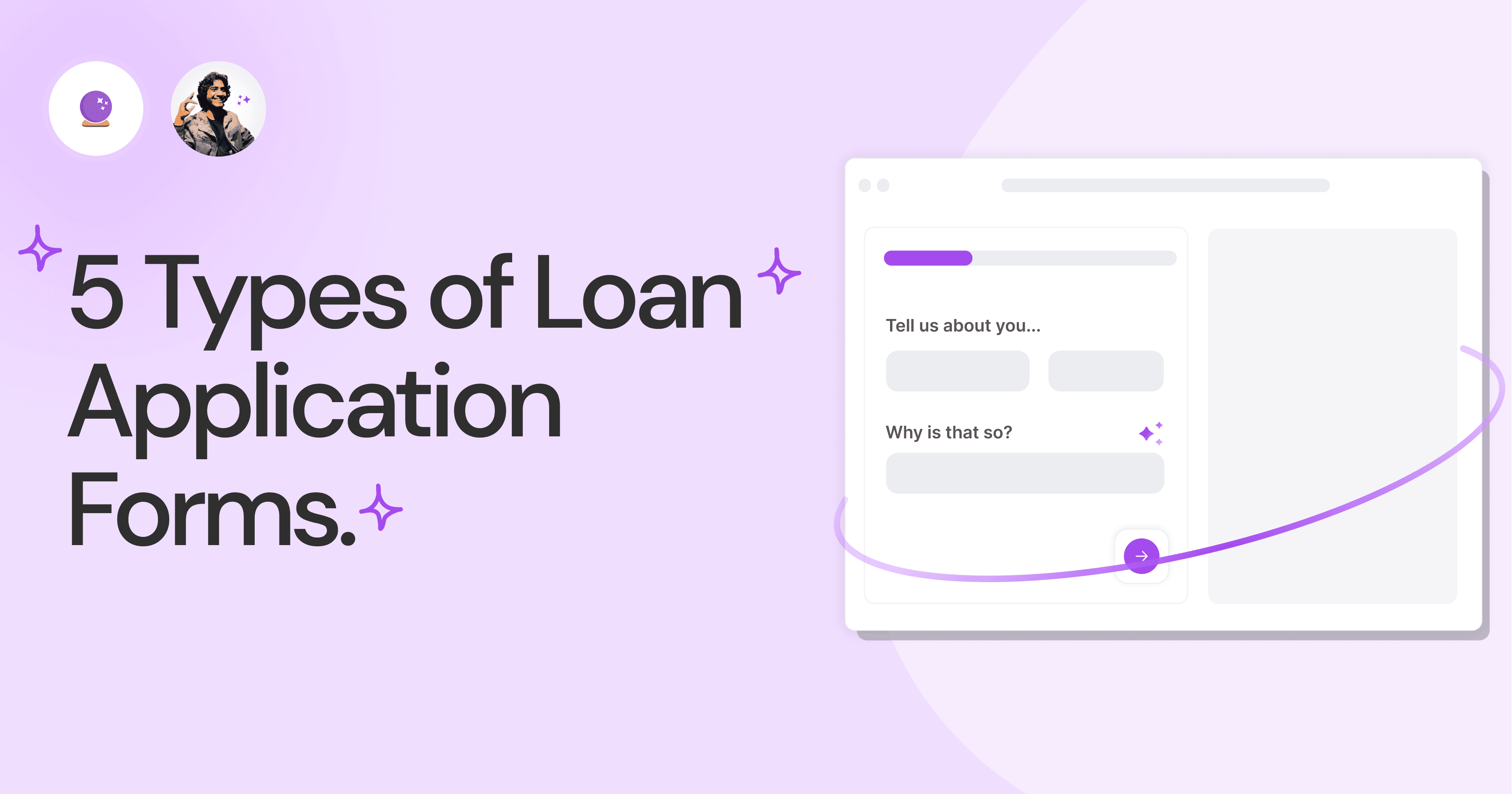
5 Types of Loan Application Forms.
A loan application form is how you collect accurate and detailed information about a loan applicant. But which form has which sections? Let’s go deeper.
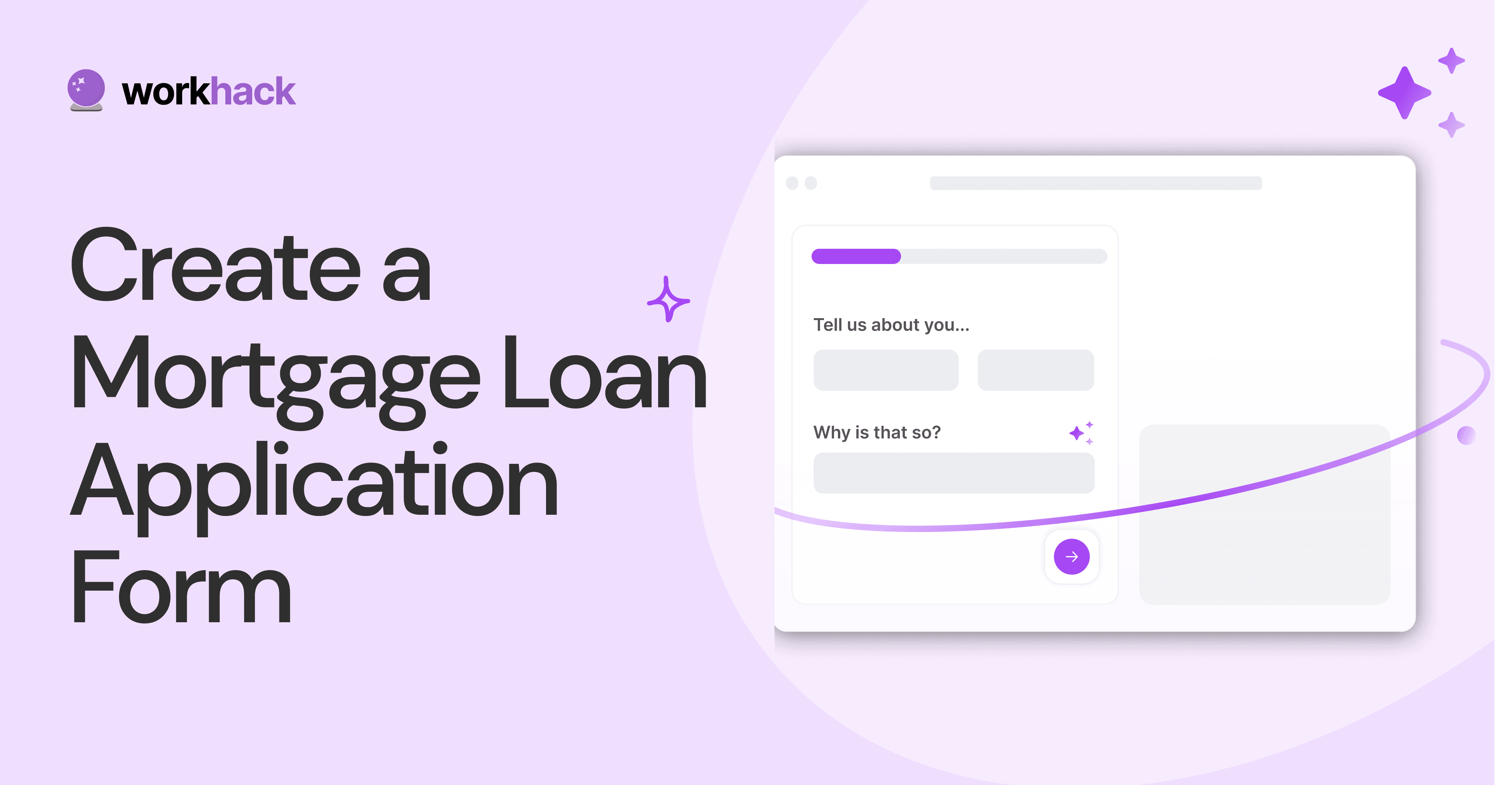
Create a Mortgage Loan Application Form.
The mortgage application form cannot have any loose ends because of the high loan costs. Are you making it right? Time for a quick recall.

Make an Easy to Fill Personal Loan Form.
Making a personal loan form is simple once you know the main sections and how to make an applicant quickly fill them out. Explore more in this blog.

Build The Best Credit Card Authorization Form.
One of the most frequently used finance forms is the credit card authorization form. But it is still being made as if we’re in the 1990s. Let's do it better.

KYC Form: What, Why and How?
KYC is an important step in the finance domain. But what does it mean to know your customer, and what are KYC requirements? Let’s find out.

5 Types of Loan Application Forms.
A loan application form is how you collect accurate and detailed information about a loan applicant. But which form has which sections? Let’s go deeper.

Create a Mortgage Loan Application Form.
The mortgage application form cannot have any loose ends because of the high loan costs. Are you making it right? Time for a quick recall.

Make an Easy to Fill Personal Loan Form.
Making a personal loan form is simple once you know the main sections and how to make an applicant quickly fill them out. Explore more in this blog.

Build The Best Credit Card Authorization Form.
One of the most frequently used finance forms is the credit card authorization form. But it is still being made as if we’re in the 1990s. Let's do it better.

KYC Form: What, Why and How?
KYC is an important step in the finance domain. But what does it mean to know your customer, and what are KYC requirements? Let’s find out.

5 Types of Loan Application Forms.
A loan application form is how you collect accurate and detailed information about a loan applicant. But which form has which sections? Let’s go deeper.

Create a Mortgage Loan Application Form.
The mortgage application form cannot have any loose ends because of the high loan costs. Are you making it right? Time for a quick recall.

Make an Easy to Fill Personal Loan Form.
Making a personal loan form is simple once you know the main sections and how to make an applicant quickly fill them out. Explore more in this blog.

Build The Best Credit Card Authorization Form.
One of the most frequently used finance forms is the credit card authorization form. But it is still being made as if we’re in the 1990s. Let's do it better.

KYC Form: What, Why and How?
KYC is an important step in the finance domain. But what does it mean to know your customer, and what are KYC requirements? Let’s find out.
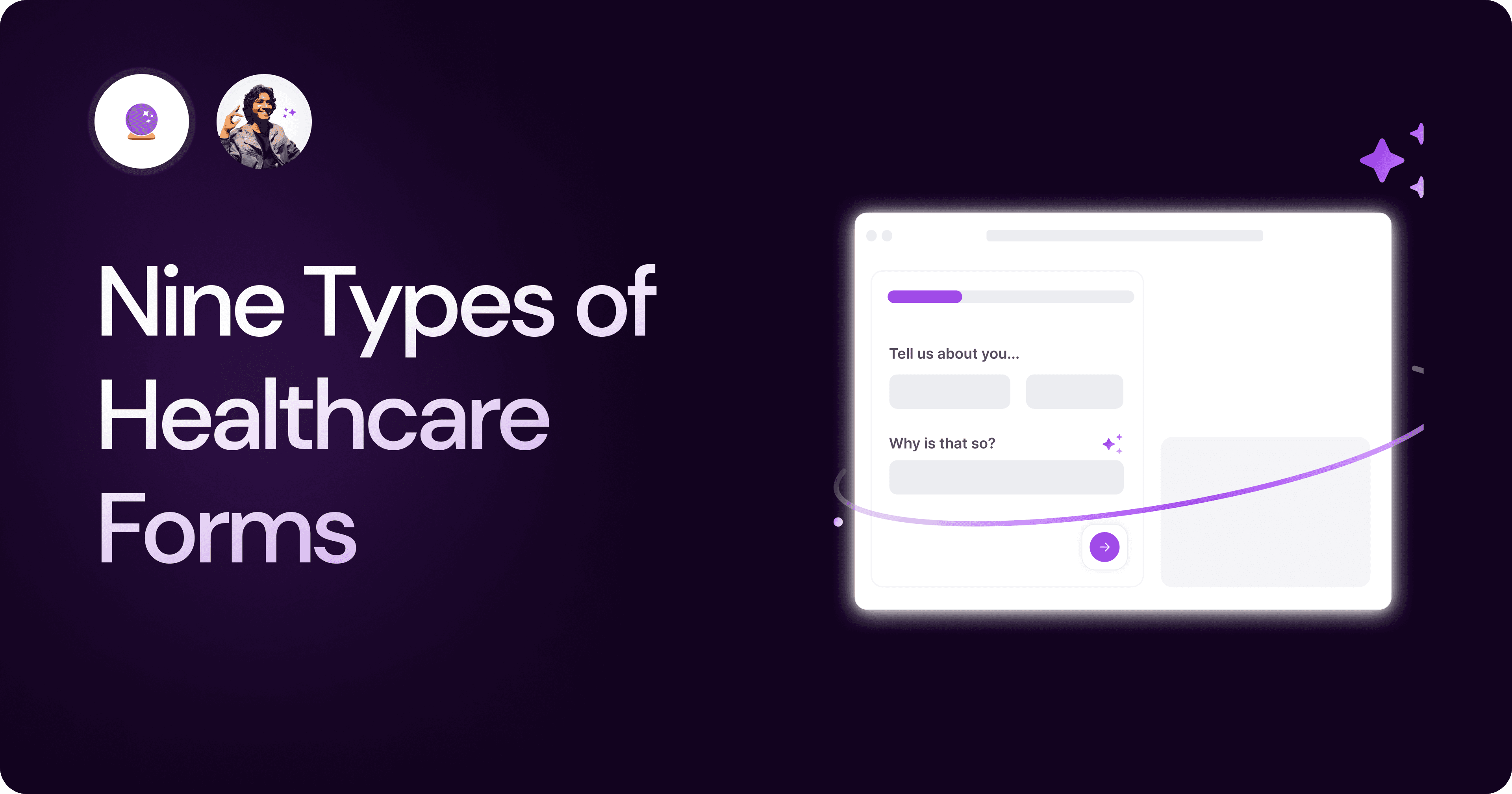
Nine Types of Healthcare and Medical Forms.
Medical forms are a must-have for any healthcare business or practitioner. Learn about the different kinds of medical and healthcare forms.
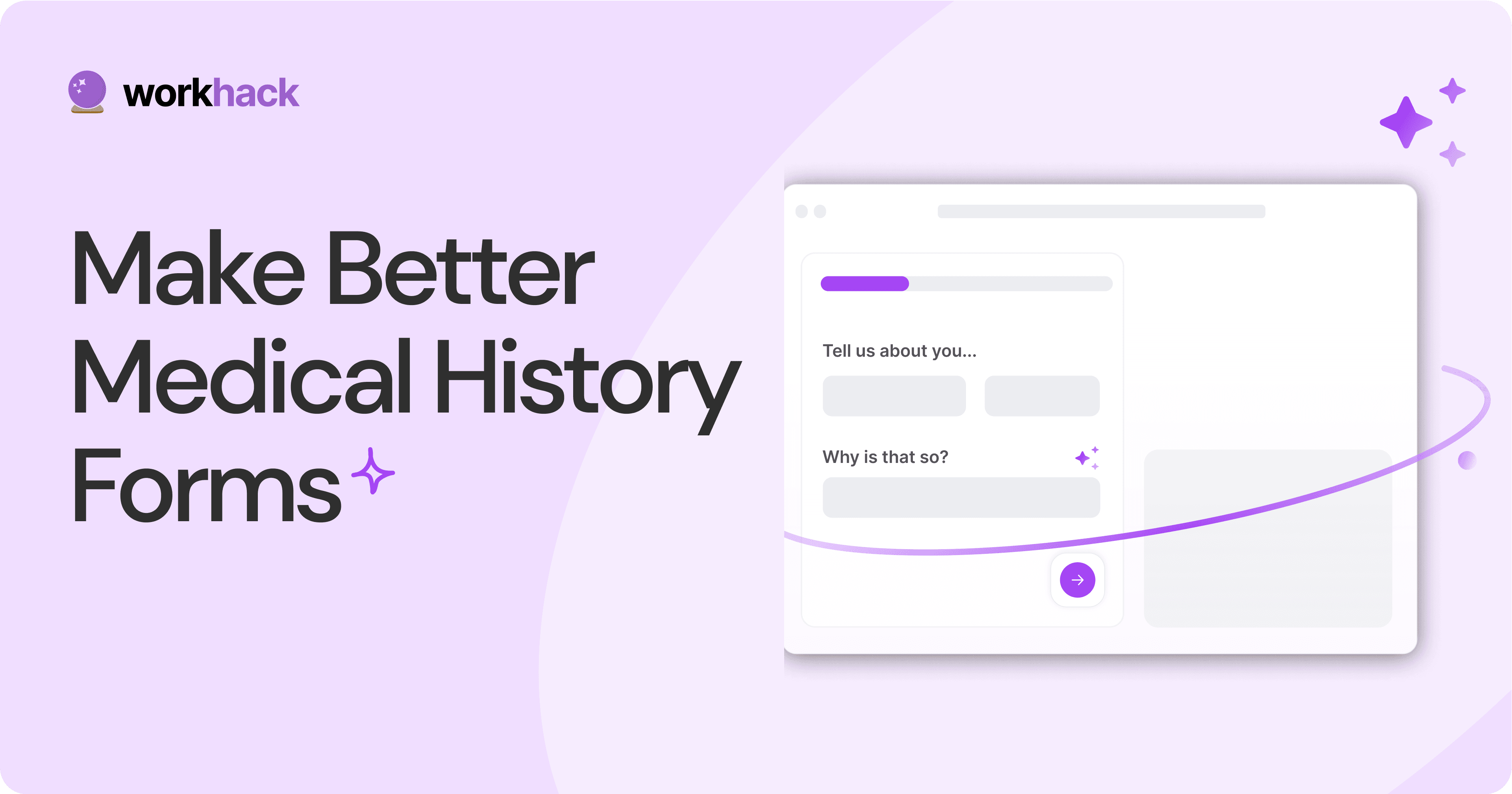
4 Tips for Better Medical History Forms.
Medical history forms are central to patient care, onboarding, and medical administration records. Learn how to make them easier to fill.
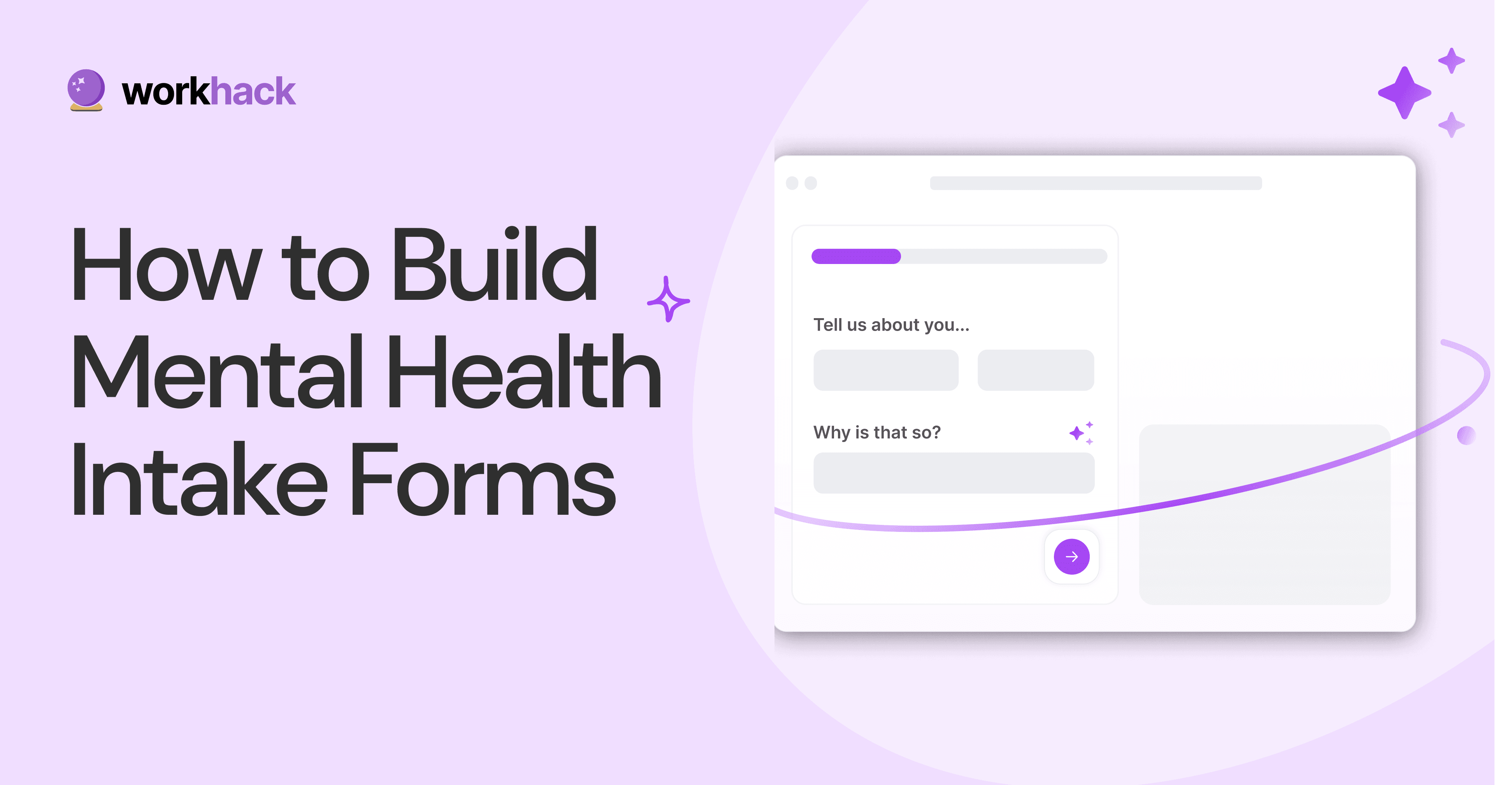
How to Build Mental Health Intake Forms?
Mental health intake forms are not like patient intake forms. Mental health intake forms deal with far more sensitive data and have specific design methods.
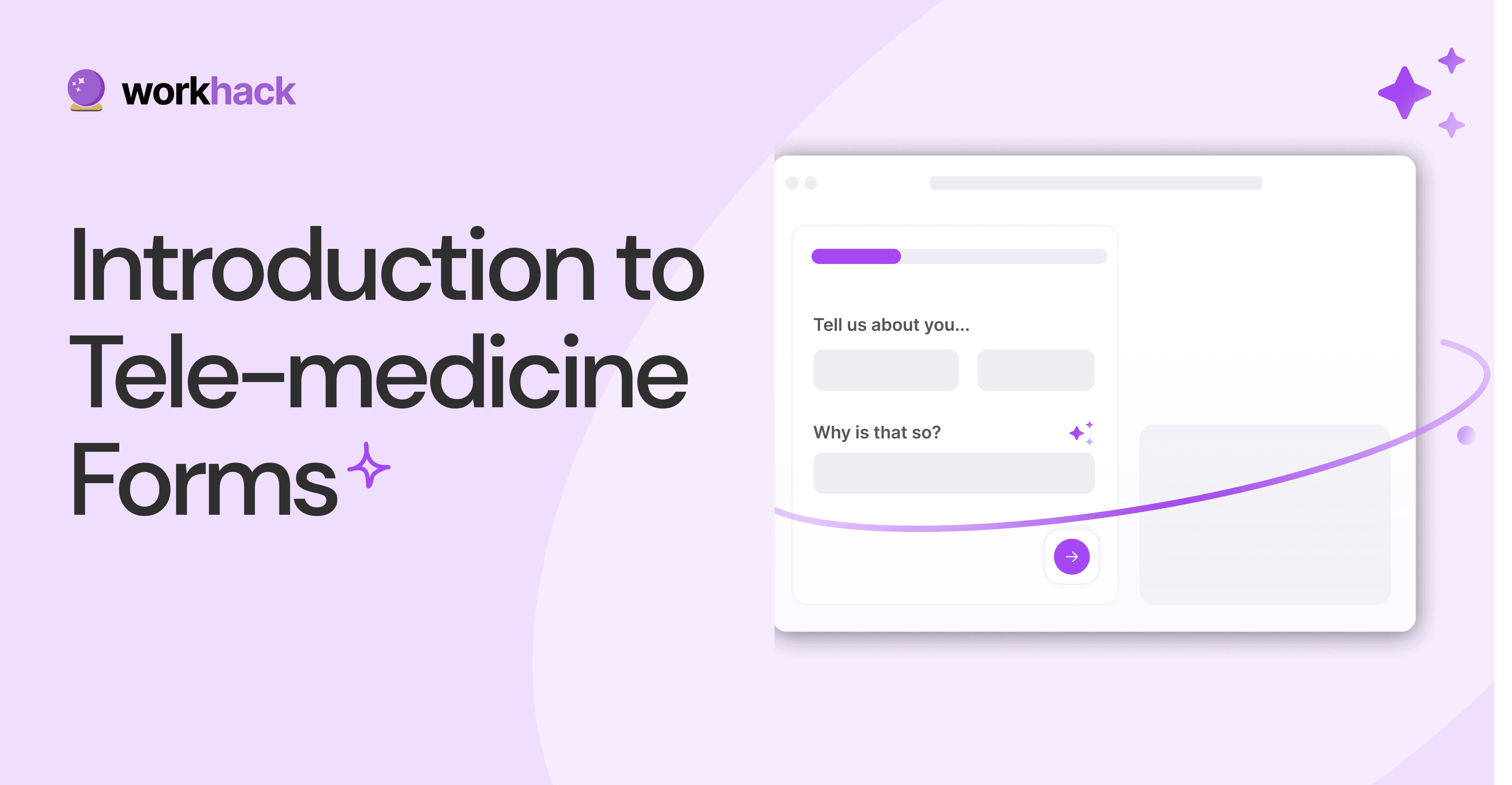
What, Why and How of Telemedicine Forms.
Telemedicine is on the rise and with different form builders out there, which one best suits your needs as a healthcare services provider?
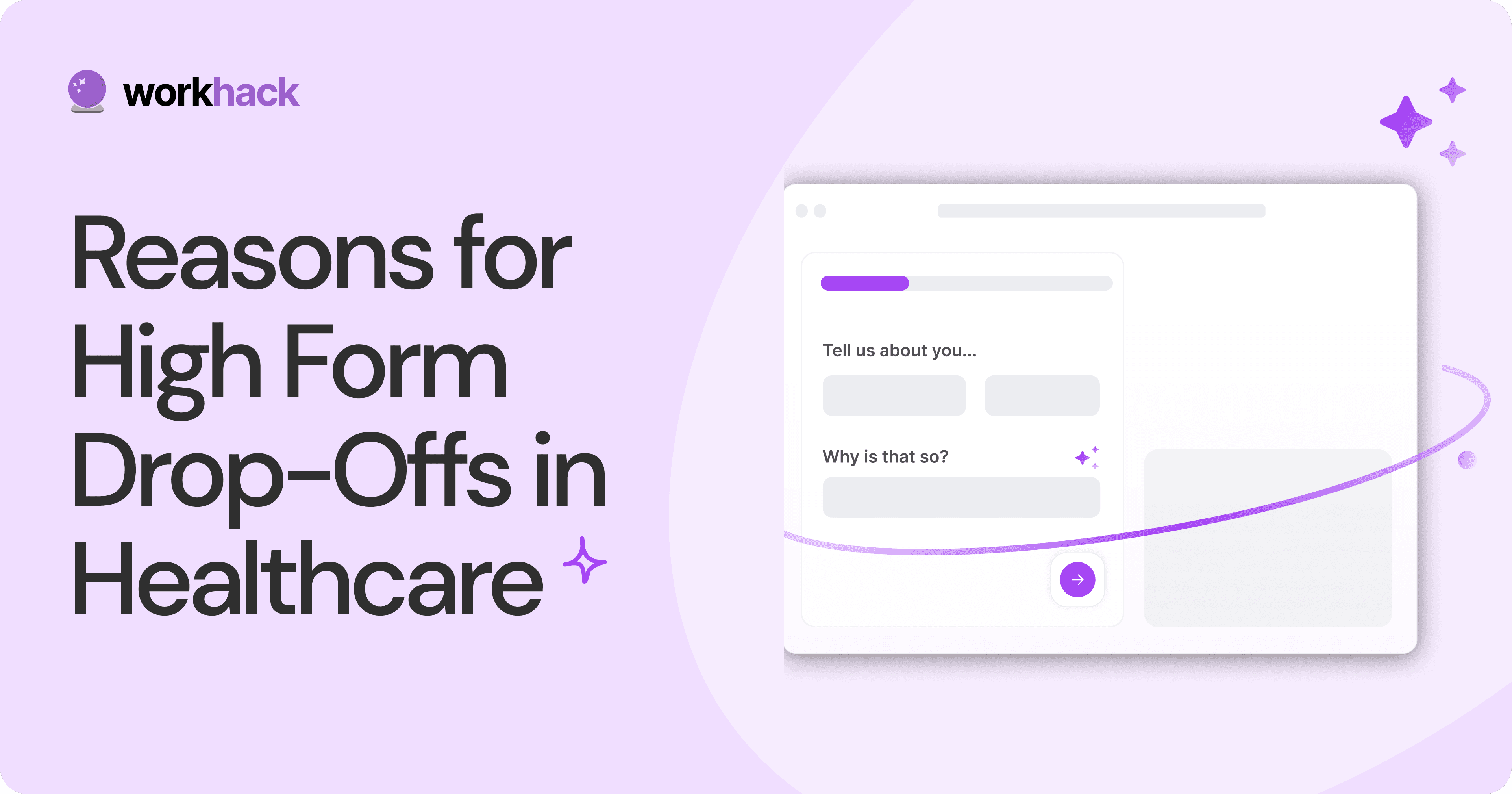
3 Reasons for Major Drop-Offs in Medical Forms.
No matter which healthcare form we pick, there are major drop-off reasons. We shall dive into the top 3 and learn how to resolve them in your next form.
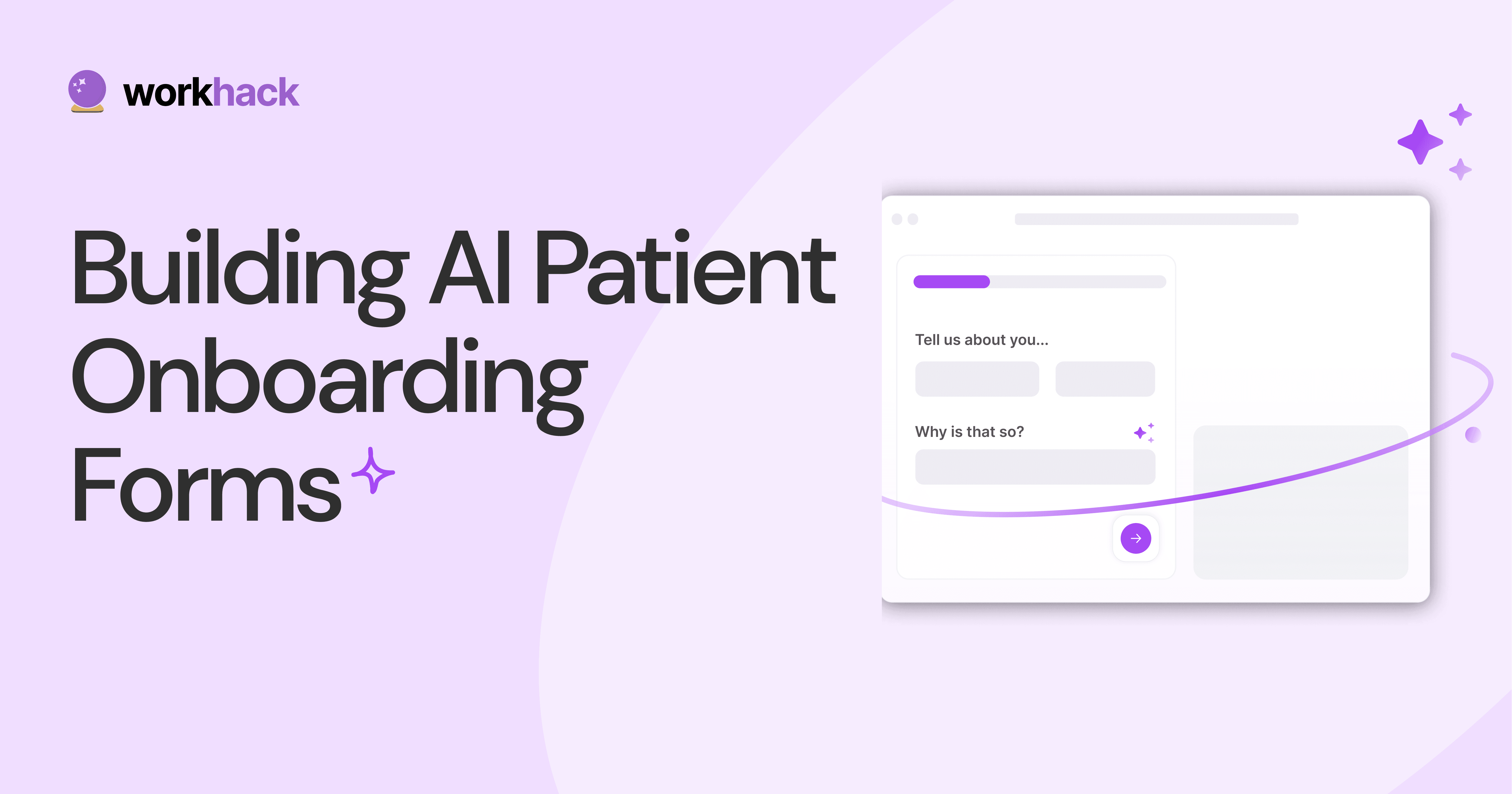
Patient Onboarding Forms - From Click to Clinic.
Patient onboarding forms are the first touchpoint for patients; getting this right for higher conversion rates is a must-have. Learn how to perfect them now.

5 Key Parts of a Good Patient Satisfaction Form.
The goal of patient satisfaction surveys is to course-correct the services of a healthcare provider. Patient feedback leads to a culture of patient-centric care.
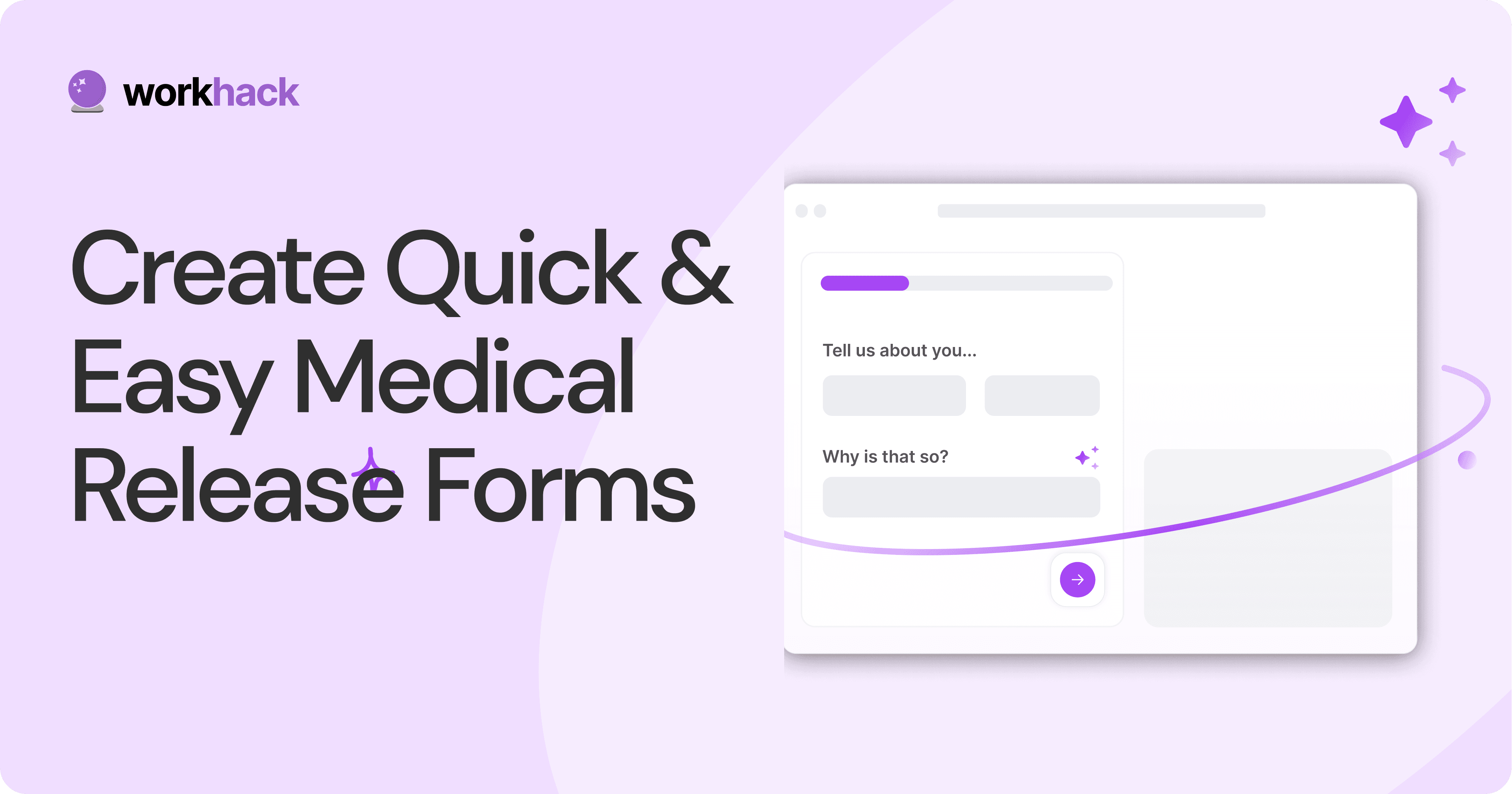
Build Quick and Easy Medical Release Forms.
Every HIPAA-compliant healthcare provider comes across medical release forms that involve details from medical history forms. Can they be shipped fast? Yes.

5 Types of Loan Application Forms.
A loan application form is how you collect accurate and detailed information about a loan applicant. But which form has which sections? Let’s go deeper.

Create a Mortgage Loan Application Form.
The mortgage application form cannot have any loose ends because of the high loan costs. Are you making it right? Time for a quick recall.

Make an Easy to Fill Personal Loan Form.
Making a personal loan form is simple once you know the main sections and how to make an applicant quickly fill them out. Explore more in this blog.

Build The Best Credit Card Authorization Form.
One of the most frequently used finance forms is the credit card authorization form. But it is still being made as if we’re in the 1990s. Let's do it better.

KYC Form: What, Why and How?
KYC is an important step in the finance domain. But what does it mean to know your customer, and what are KYC requirements? Let’s find out.
Subscribe to stay updated.
Subscribe to stay updated.
Subscribe to stay updated.
HC

HC

HC

HC

70+ people from across industries read our emails.
HC

HC

70+ people from across industries read our emails.
HC

HC

HC

70+ people from across industries read our emails.




Bangalore, India / San Francisco, US
WorkHack Inc. 2023
Bangalore, India
San Francisco, US
WorkHack Inc. 2023
WorkHack Inc. 2023
Bangalore, India / San Francisco, US
WorkHack Inc. 2023
Bangalore, India / San Francisco, US




